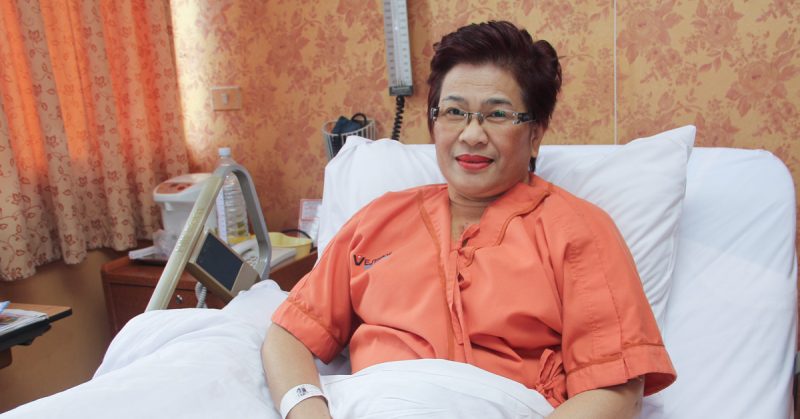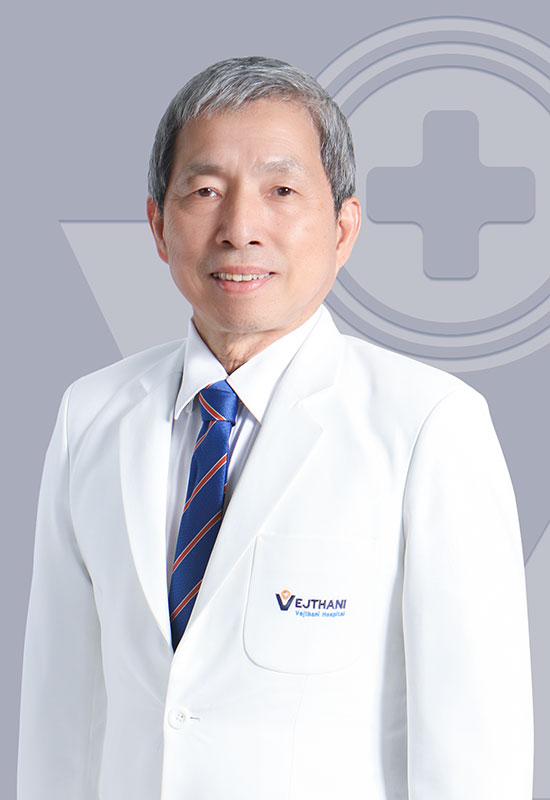

Living with a lifelong habitude of saying the word “It’s okay” may sometimes make us overlook something important and cause mistakes, especially when it’s about our health. Dr.Taweesak Chotivatanapong, a cardiothoracic surgeon has learned a lot from his patients.
Dr.Taweesak has shared one of his patient’s stories as an example to the ones who think that they are strong and healthy. This patient’s story is about a chief nurse who was very active, strong, and energetic. Many years ago, an abnormality in her heart was detected but she overlooked it because she was strong and able to do many activities as usual at that time. She thought that the condition was not that serious. Eventually, she has decided to come to see the doctor because her symptoms started to affect her life. About 3-4 months ago, she felt unwell and easily tired. After a few diagnostic tests, she was diagnosed with a severe stage of leaky heart valve condition. With the advancement of medical technologies and the expertise of the doctor, she has received a heart valve repair surgery.
Patient’s story: Mrs.Sawitree Sookthis (Khun. Deang)
Mrs.Sawitree Sookthis is willing to share her experience with others as an example. Even though she works closely with the doctors in the medical industry for more than 10 hours a day, but she almost passed away because of her thoughts and habitude of saying the word “It’s okay. I’m fine”.
In 2008, Mrs. Sawitree experienced the first sign of a leaky heart valve. She explained that “During an annual health check-up, there was a murmuring sound in my heart. So, I was sent to do more precise tests which were Echocardiogram and Electrocardiogram. The test results showed that there was a slight leaky heart valve without any other complications. The doctor asked me to keep observing the symptoms, such as exhaustion, edema, and bruises. They also mentioned that if the symptoms occur, I have to undergo the surgery as soon as possible.”
Originally, Mrs.Sawitree was an active woman who keep taking good care of herself and loves traveling. After she was diagnosed with a slightly leaky heart valve condition, she kept observing her symptoms all the time. However, during the last 2 -3 years ago, she went to travel to different places many times, so that she couldn’t control her diet and take care of herself as she used to do. In 2013, Mrs.Sawitree underwent an annual health check-up as usual. She found that her fat and cholesterol rate was higher than the last year. Her blood test result wasn’t good as well. Hence, she was recommended to undergo more tests at Vejthani’s Cardiac Center. After the cardiac catheterization, we found that her leaky heart valve condition was progressed, causing the blood to flow back into her heart. The doctor, therefore, suggested Mrs.Sawitree to undergo a heart valve repair surgery at that time.
Dr.Taweesak Chotivatanapong, a cardiothoracic surgeon who performed the surgery explained that, “In the past, if the patient does not have any noticeable symptom; the doctor will try to control by prescribing medication until the patient has the symptoms of extreme exhaustion. Then, the heart valve replacement surgery will be performed. As a result, the heart is extremely tired and undergoing heart replacement surgery while the heart is tired will impact in shorter lifespan of the patient than normal people. The patients who underwent mechanical heart valve replacement will have to take anticoagulant medication for the rest of their lives, and there will be complications from taking the medicine as well as the risk of a blocked artificial valve will be higher. For the patient who underwent biological heart valve replacement, the valve may deteriorate faster. Regarding Mrs.Sawitree’s case, I have to admit that the affected location of the valve is a difficult location to perform the surgery. Luckily, the patient was transferred to undergo the surgery early and we can perform heart valve repair surgery. As a result, the patient can go back to live her normal life faster and she can live as long as normal people do.”
Mrs.Sawitree added that “during the operation, the chest is cut open to bring the heart out in order to repair the damaged valve. The heartbeat is paused and an artificial heart will be temporarily replaced during the operation. It may sound scary but please don’t worry. What you need is only “Courage”, and you need to know that you have to rest for around 3 months for recovery until the chest bone is completely connected. In the positive thinking way, undergoing the surgery early while you are strong and able to get faster recovery is better than undergoing the surgery when you are old and the symptom is progressed, because the effectiveness of the treatment may be decreased.” Mrs.Sawitree was in the operation room for around 4 hours, she got a fast recovery, and she could walk within 4 days after getting the surgery. Importantly, the surgery outcome was satisfactory.
“It was a surgery that felt like I was dead and being born again … my heart will be able to last for 100 years,” said Mrs.Sawitree.
Mrs.Sawitree also gave a recommendation to others that “Even though you are strong and don’t have any abnormality, you still need to undergo health check-up because there might be something hiding in the body. If you ignore it, it may become worse and difficult to be treated. The more you get older, the higher the risk you will have. Please don’t believe in myths, but believe in the doctor’s recommendation. Don’t be scared of the surgery. If it’s damaged, we can just repair it.”
For more information, please contact
Cardiac Center, Vejthani Hospital
Call: (+66)2-734-0000 Ext. 5300
English Hotline: (+66)85-223-8888
- Readers Rating
- Rated 5 stars
5 / 5 ( Reviewers) - Spectacular
- Your Rating

























